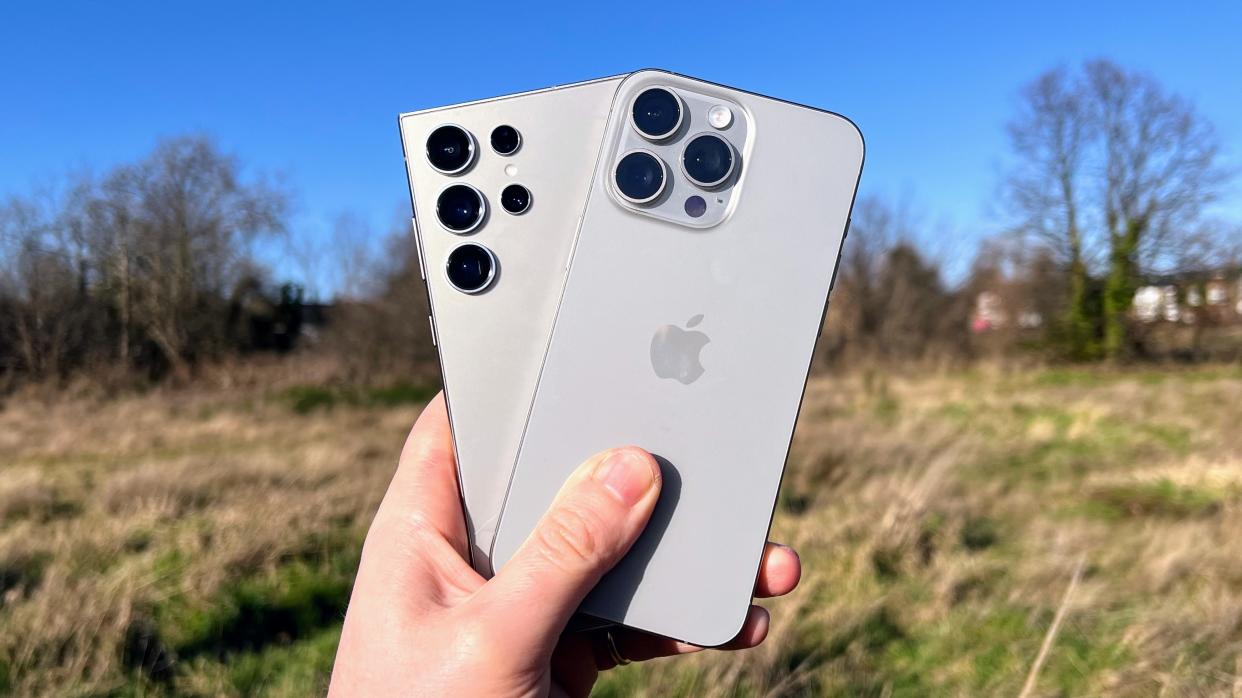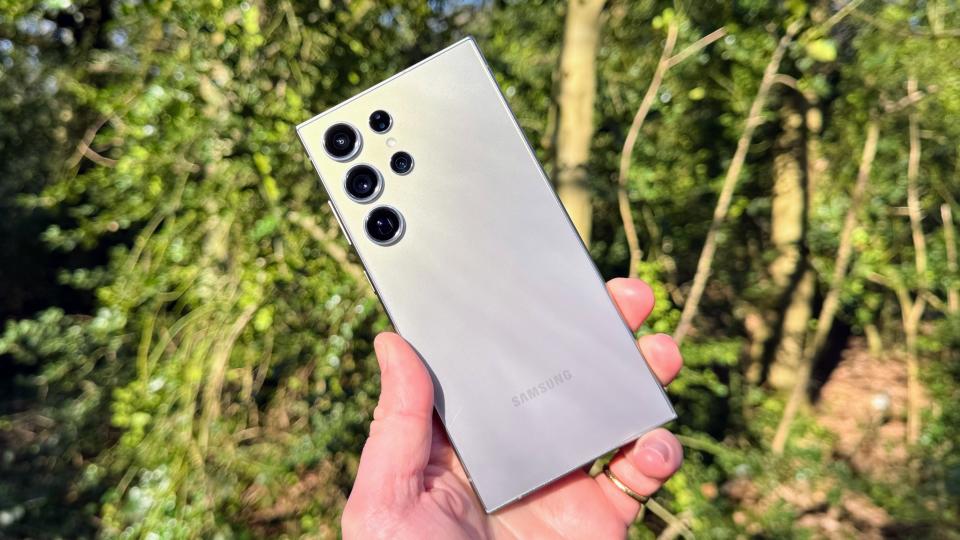I thought titanium on phones was nonsense until I tried the iPhone 15 Pro Max and Galaxy S24 Ultra

When the rumors of the iPhone 15 Pro having a titanium frame bubbled up last year, I was unconvinced. Not because I doubted the veracity of the near-constant spinning of the smartphone rumor mill, but because the use of titanium could be a marketing gimmick and a way to crank up the price of the next-gen iPhone and subsequent handsets that followed in its footsteps.
I was wrong.
There's nothing like experiencing things firsthand, and once I got my hands on the iPhone 15 Pro Max my view of it and the use of titanium completely changed, to the extent that the iPhone 15 Pro Max stopped me from moving back to Android.
In simple terms, the use of titanium on the largest iPhone chassis not only made the phone notably lighter compared to the iPhone 14 Pro with its stainless steel frame, but also made what I considered to be a slightly-too-large iPhone into a device that’s far easier to wield. So suddenly, I’m a Max guy.
Having originally felt that I’d miss the heft of steel on the Pro iPhones, my view has flipped to the point that I now gently caress the somewhat soft-touch sides of the titanium-rocking iPhone 15 Pro Max. That, and the work Apple has put in to blend four color options into the metal, has made for an attractive phone that keeps what’s good about its predecessor's design but refines it wonderfully.
Of course, one phone’s neat use of titanium doesn’t mean it’ll be the same for others. But I may need to reign in that mild skepticism once again.
That’s because I also have the Samsung Galaxy S24 Ultra to try out, which, like its Apple rival, has also opted for a titanium frame.
Elemental, my dear smartphone

Samsung’s new flagship hasn’t managed to shed as much weight as the iPhone 15 Pro Max when compared to its respective predecessor, the Galaxy S23 Ultra, but it still feels that bit easier to use one-handed. Combined with new flat screen edges and gently curved titanium sides, the big 6.8-inch phone feels soft and comfortable in my hands, with the edges seemingly blending in better with the phone’s overall body.
What’s more, I also got a real-world demonstration that titanium is indeed tough as well as light. A few days ago, while draping my coat over a chair at a local pub, the Galaxy S24 Ultra decided to hop out of my coat’s inner pocket and dive bomb to the hard floor. While fellow Managing Editor, Matt ‘Entertainment’ Bolton wryly chuckled at my clumsy nature, I looked aghast at what I thought was going to be a savagely chipped phone. But instead, the Galaxy S24 Ultra remained unscathed.
This was low-key impressive, not least of all because the Galaxy S23 Ultra has somehow got ding in its body from simply being in my bag let alone face planting the floor. So the Galaxy S24 Ultra is quite the tough puppy, and maybe sets a standard for other phones to follow.
Don’t get me wrong, the Galaxy S23 Ultra is still a lovely phone that can endure the rigors of day-to-day life. But the S24 Ultra is a testament to how iterative evolution can ultimately lead to an overall fantastic slab of hardware; I hate myself for saying that, as I’ve wanted Samsung to push phone innovation further, but I suppose that’s more for its foldable phones.
Speaking of which, while I’m now convinced titanium is great on flagship phones and should be adopted by next-generation Pixels and OnePlus phones, it could be a huge boon for foldables.
I love using foldable phones, with a Samsung Galaxy Z Fold 4 currently within my reach as I write this. But they never end up being my main phones due to their weight. Now if the rumored Samsung Galaxy Z Fold 6 were to go for a titanium frame, it could become a foldable phone that feels a lot easier to use and pocket on a daily basis. I’d hope by using a stronger metal, a next-gen Fold could also be made a little slimmer as well.
So, in short, I’ve become a convert to the use of titanium in phones. Even if that means they get a price hike, I feel the added endurance, lightness and overall feel are worth it. And now I’ll wait and see if future versions of some of our best Android phones will follow the example set by the iPhone 15 Pro Max and Galaxy S24 Ultra; roll on 2024.
